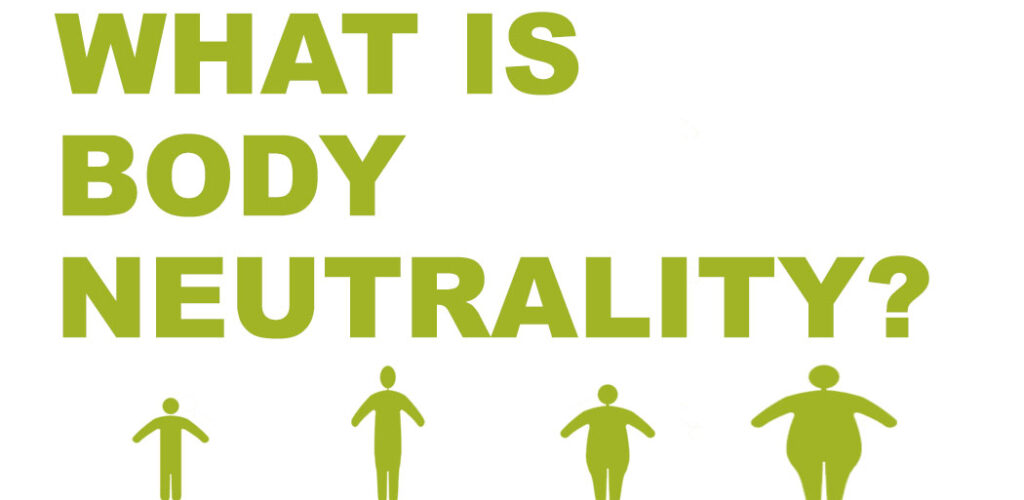

Body Neutrality is a term that was first coined in 2015, and is a concept that describes the idea that your body doesn’t have to be hated or loved based on how it looks, just appreciated for what it can do for you. So this means that you focus on the functions of your body and the numerous things it can do for you. Some examples of Body Neutrality could include practicing being grateful that your body has the capacity to carry itself when you’re running and/or playing a sport, or even more simple things like being able to carry a backpack filled with books for school.
Body Neutrality was first introduced as an alternative to Body Positivity. Body positivity is the practice of encouraging positive thinking about our bodies, finding ways to actively love our bodies, and working towards feeling good about bodies in general. However, that can feel like a lot of pressure, especially for people who have complicated relationships with their bodies. They may never get to a point where they love how their body looks, and that can make not being Body Positive about yourself feel like a failure. Body Neutrality is about opening up more space for people to appreciate and love their bodies in specific ways, without feeling overwhelmed or distressed about conforming to societal expectations of looks.
Body Neutrality in sex is about focusing on the ways that your body feels good, and how your body can help you experience sexual pleasure. This type of focus might help you feel more comfortable in exploring your sexuality, and help you to foster a more sex-positive mindset in general.
A way this works, for example, is that during sex with a partner, rather than thinking about what your partner thinks of your physical appearance, you could focus on what physical things you’re feeling in that moment. Paying attention to how your body feels during sex can make sex better for you and your partner by shifting the focus from your idea of what sex is “supposed” to look like to your body’s sexual needs (and your partner’s too). Body Neutrality can also be practiced in exploring your own sexuality through self-pleasure, such as masturbation.
Practicing Body Neutrality as Self-Care looks like focusing on what your body needs to feel good. It’s about caring for your body how it is, and not treating yourself harshly to make your body do/be what you want it to do/be. For example, but it could look like instead of doing more intense workouts so your body looks a certain way, you decide to take more rest days to allow your body time to rest and relax. Bodies need to rest and need to eat, and listening to that is important. Having a more increased sense of awareness of your body’s needs can in turn lead to a different kind of self-care.
It’s important to remember that only you get to choose how you define your relationship with your body. Body Neutrality is one strategy for relating to your body, but other perspectives can be helpful too. For example, Body Positivity as a movement was created specifically to create a safe space for people who have to deal with fatphobia. In that context, it might be really important to emphasize how fat bodies are beautiful (because they are!) in addition to the practical things they can do. To some, learning that their body type and physical appearance is beautiful can help them to feel better about their body, and therefore help to improve their relationship with their body. For others, taking all of the focus away from their physical appearance, and moving that onto appreciating all that their body does for them is what helps to improve their relationship with their body. At the end of the day what matters is that you are choosing to love yourself the way you want to!
If you have questions about this topic, feel free to contact one of our peer educators. [Link]
Last Updated: April 2021

Check out our OpEd column on Internalized Biphobia written by one of our Peer Sexual Health Educators!

The Black Coalition for AIDS Prevention (Black CAP) is Canada’s largest Black specific AIDS service organization. Check out our post to learn more!

Teen Health Source is proud to be marking 25 years of providing peer sexual health information to youth across the GTA!